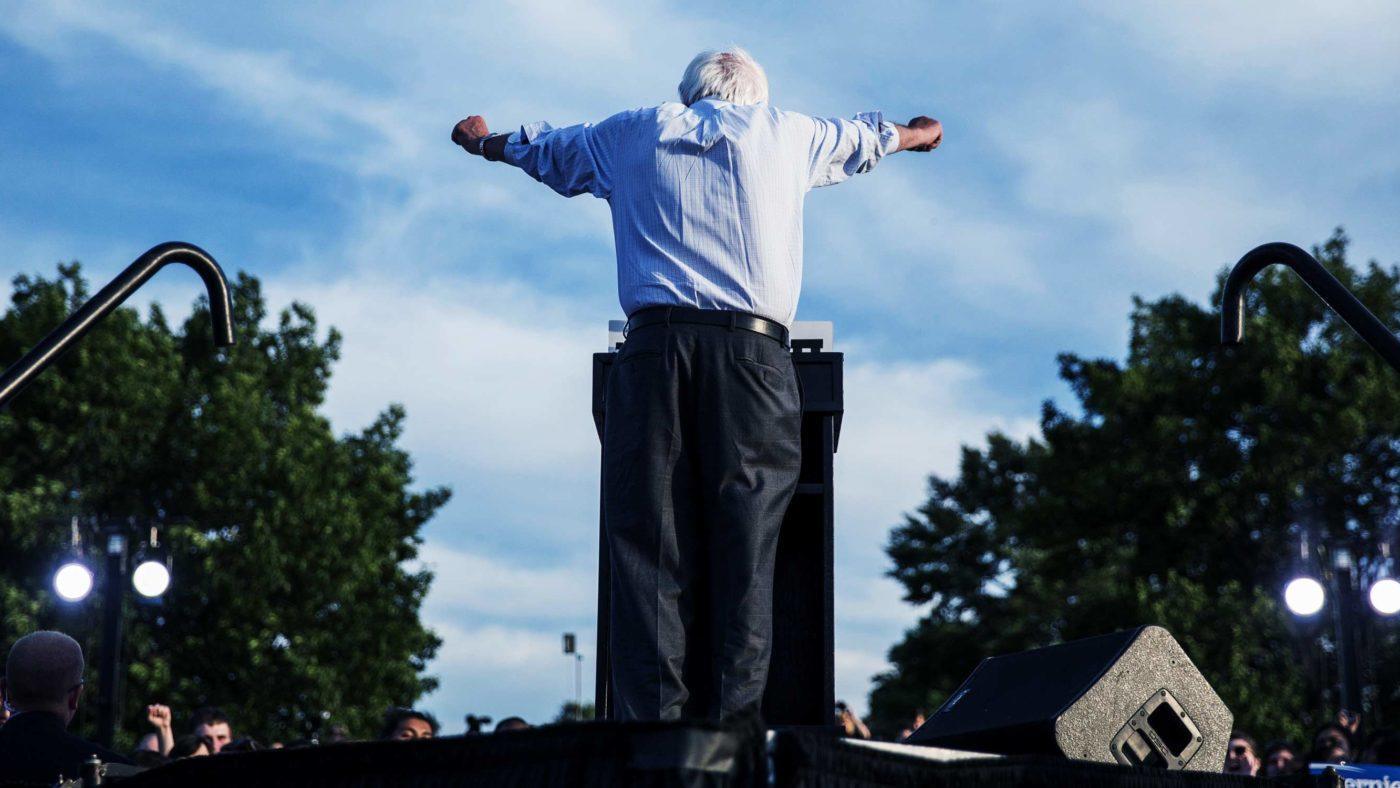Last night, a few hours before the polls closed in the District of Columbia Democratic Primary, Bernie Sanders tweeted the following:
We must get rid of superdelegates. The fact that we had 400 superdelegates pledged eight months before the first ballot was cast is absurd.
— Bernie Sanders (@BernieSanders) June 14, 2016
Of course, the result was settled over a week before DC voters headed to the polls, when it became clear that Hillary Clinton had passed the delegate threshold to assure her the nomination on the night of June 6th. The following day, she won California, the largest state in terms of delegates, by nearly 12 points. By the time the California count was in, Clinton has 2,213 pledged delegates in total, compared to Sanders’ 1,828.
Anyone looking at those numbers could see it was obvious that Clinton had beat Sanders – and beat him substantially, by nearly 400 pledged delegates. And yet, as I documented last week, neither Sanders nor his core supporters were willing to concede. Why? Because the magic number in Democratic primaries is 2,383, which represents a majority of both pledged delegates and superdelegates. Time after time, Bernie supporters attempted to explain to me that, although the 714 superdelegates can publicly declare their support for a candidate, they do not technically vote until the Democratic Convention in July. It was therefore possible (I was told repeatedly) that hundreds of the 543 superdelegates supporting Clinton could change their minds and switch their allegiance to Sanders, giving him a lead despite his trailing numbers.
Why would the superdelegates do this? To this, there was no answer. But I conceded that, although superdelegates have never tipped the nomination away from the leading candidate before, it was theoretically possible, if highly unlikely. If Bernie Sanders and his fans wanted to fantasise about 543 pro-Clinton superdelegates switching to the candidate with fewer votes, that was their decision.
All of this, however, makes Bernie Sanders’ tweet on the day of the DC primary seem rather absurd. There are valid arguments both for and against superdelegates, and it is likely the Democratic Party may reconsider its rules. But right now, Sanders’ only hope of even being considered for the nomination rests on the very representatives he calls “absurd” and has previously lambasted as being undemocratic. On the one hand, he needs the superdelegates to exist in order to maintain he still has a shot at the nomination. On the other, railing against them is a useful way to fire up his supporters against the Democratic Party leadership.
If Sanders is genuinely against the existence of superdelegates, he should announce once and for all that he will not accept the nomination being tipped in his favour against the will of the majority of Democratic voters, and concede. Instead, he has refused to acknowledge Hillary Clinton’s victory, and seems intent on muddying the waters, implying Clinton is only leading thanks to the shady machinations of the mysterious superdelegates, rather than the fact that she received 3.8 million more votes.
As of the time of writing, Bernie Sanders’ tweet has been retweeted 4,700 times. He lost the DC primary by 51 points, but as his supporters have made clear, the revolution lives on.
Bernie Sanders: End of Voting Does Not Mean End of Political Revolution https://t.co/57RMOugZ1d #Sanders
— Uncle Bernie (@RealTheBernIsOn) June 15, 2016


